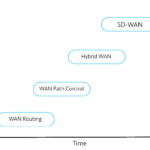3 years back, the Federal Trade commission expressed a hope for the brightest flashlight application for the Android devices. The Android apps was capable of transmitting the location of the users as well as the ID of the user’s device to 3rd Parties, without the user having any clue for such instances. As it came up from the finding of a recently conducted research, it is possible to manipulate Android apps to access the data stored on the mobile devices. Certain Android apps can even reveal the location of the users, without giving the slightest hint to the concerned users. These findings were revealed to the researchers while they were given a test run on an Android apps that they develop to serve the tracking jobs.
How the app intrudes on the sensitive and private information?
In case an Android apps tries to access the sensitive information like the location of the users, it should always intimate the users. However, in the majority of the cases, such attempts are hibernated as per the clause of usage. Users face further privacy threats as they have automated access to the major censors in the devices that detect its location, orientations as well as movements and usage history. Retrospectively, these sensors can offer hints on your complete usage history as well as the information stored in the device. The research team stated that using the sensors, one can offer the stiffest threats to the privacy of the users. Conditions turn more critical as these censors never ask for the user’s permission to give access to the sensitive and private information.
What was the testing conducted by the research team?
The research team conducted drives across eleven cities like Rome, Boston, Berlin as well as Atlanta. These researchers took up the task to drive themselves and thy covered over thousand KM. They collated measurement scores, generated from the changes in the location of the phone. These changes include curving trajectory as well as the angles of turning.
The latest finding of these tests surpassed the observations made during the initial testing phases. It displayed that there exist over 50% chances for the actual traveling path getting revealed to 3rd parties. Hence, the research team came up with the warning that with the minimal efforts, evil forces can have 24/7 spying on the Android device users through these Android apps. Aside, they can siphon the most sensitive private data & information, without giving any hits to the device users.
How can an Android user protect his/her privacy against such threats?
Considering the intensity of these threats, it is obvious that Android users will be concerned about their privacy and safety. Hence, they would like to know the ways to escape these unsolicited intrusions. To this, the research team answered that users need to be very sure about the safety and privacy standards while downloading any Android apps. Users should not install Android apps that they are unfamiliar with.
The research team emphasized that users should download and install Android apps only after they conduct detailed assessments on the safety and privacy aspects.

 Why Your Link Building Efforts Might Fail
Why Your Link Building Efforts Might Fail  How to Request or Give Remote Control in a FaceTime Call on iPhone
How to Request or Give Remote Control in a FaceTime Call on iPhone  The Rise of Intelligent Automation in Business Operations
The Rise of Intelligent Automation in Business Operations  The Best Ideas for Designing Your Custom Printed Ring Binder
The Best Ideas for Designing Your Custom Printed Ring Binder  How Technology is Changing the Way We Play Hearts
How Technology is Changing the Way We Play Hearts  The Rise of Open Source: A Journey to Innovation and Collaboration
The Rise of Open Source: A Journey to Innovation and Collaboration  How SD-WAN Is Revolutionizing Business Networks
How SD-WAN Is Revolutionizing Business Networks  Effective Digital Advertising Strategies for Modern Businesses
Effective Digital Advertising Strategies for Modern Businesses  Tips for Marketing Dental Packages: Easy Ways to Grow Your Reach
Tips for Marketing Dental Packages: Easy Ways to Grow Your Reach 